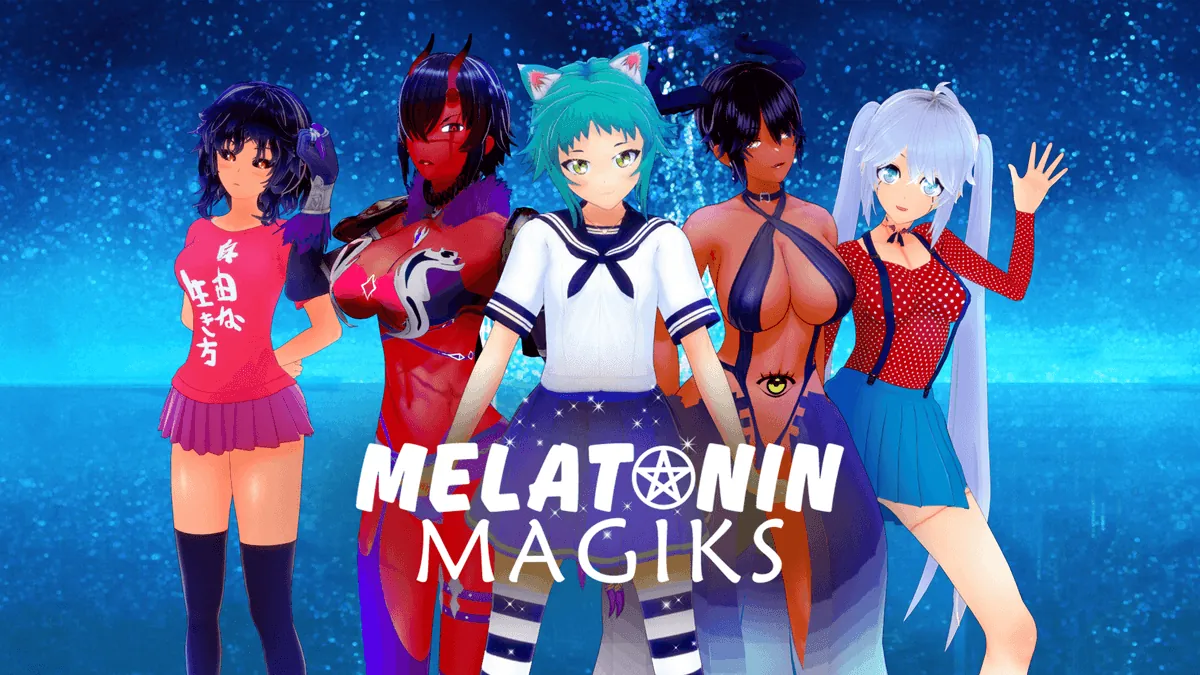
Aperture
Play Aperture
Aperture review
Explore the Story, Gameplay, and Unique Features of Aperture
Aperture is a distinctive visual novel game that draws players into a slow-burning narrative filled with emotional drama and mystery. Known for its unique storytelling and character development, Aperture offers an immersive experience that blends psychological tension with interactive gameplay. This article dives into the core aspects of Aperture, from its storyline and gameplay mechanics to its thematic depth and player reception, providing a comprehensive guide for both newcomers and fans.
Understanding Aperture: Story and Themes
What is the Core Narrative of Aperture?
Let me tell you about the first time I played Aperture. I settled in, expecting a typical story, and within an hour, I was completely hooked. The Aperture game story isn’t about saving the world from a monster; it’s about saving a person from the monster within. 🕵️♀️ You step into a seemingly ordinary situation that gradually peels back layers to reveal something deeply unsettling and personal.
At its heart, the Aperture game story follows a protagonist whose life becomes intertwined with a young woman named Rin. On the surface, Rin is charming, perhaps a little mysterious, but as you spend more time with her, you start to notice the cracks. The narrative is a masterclass in the slow corruption narrative, where the change isn’t a sudden twist but a creeping, almost imperceptible decay of normalcy. The game brilliantly uses its mystery visual novel format to make you an active participant in this unraveling. You aren’t just watching Rin’s story; you are piecing it together, choice by careful choice, and the weight of that responsibility is immense.
The core of the experience is the Rin character development. You witness her not through grand monologues, but through small, intimate moments. A hesitation before she speaks, a story that doesn’t quite add up, a flicker of something dark behind her eyes. The game makes you care for her, which makes her subsequent transformation all the more impactful and heartbreaking. This is the essence of the Aperture game story: a personal, psychological excavation that leaves you questioning everything you thought you knew about the people closest to you.
How Does Emotional Drama Shape the Player Experience?
The emotional drama in Aperture isn’t just a feature; it’s the engine of the entire game. This isn’t drama for the sake of shock value. It’s a carefully crafted, resonant experience that forges a powerful bond between you and the characters. I remember a specific scene where Rin confides a seemingly small, childhood fear. The game gave me dialogue options, and I chose what I thought was a reassuring response. Hours later, that same fear resurfaced in a much darker context, and my earlier “reassurance” felt hollow and naive. That’s the power of this game—your choices have emotional weight, and the consequences are felt, not just seen. 😥
This connection is what makes the psychological tension game elements so effective. You’re not just solving a puzzle; you’re navigating a human psyche. The tension comes from the dread of what you might discover next about Rin, and by extension, about the nature of your own involvement. The game constantly asks: How far will you go to help someone? And at what point does help become enablement?
Player Tip: Don’t rush through dialogues. The most crucial clues to the emotional drama in Aperture are often hidden in a character’s tone, a paused sentence, or what they choose not to say.
Let’s look at a brief case study of Rin’s journey:
The Arc of Rin: A Study in Emotional Unraveling
- Initial State: Rin presents as resilient but vulnerable, seeking connection. The player’s instinct is to protect and comfort her.
- The Inciting Incidents: Seemingly minor inconsistencies in her stories begin to appear. A misplaced object, a forgotten detail. The player starts to feel a sense of unease, the first seeds of the psychological tension game.
- The Gradual Shift: Rin’s dependence grows, but it becomes tinged with manipulation. Her emotional outbursts become more frequent and intense. This is where the Rin character development is most nuanced—she is both a victim and an agent of the growing chaos.
- The Climax: The carefully constructed reality shatters. The player is forced to confront the full extent of Rin’s internal struggle and their own role in the story. The emotional drama in Aperture peaks here, leaving a lasting impression.
This progression ensures you’re not a detached observer. You are emotionally invested, making the game’s payoff profoundly personal. 💔
What Themes Are Explored in Aperture?
The Aperture visual novel themes are what elevate it from a simple story to a memorable experience that sticks with you long after you’ve finished playing. The developers wove complex ideas into the fabric of the narrative, making the world feel rich and intellectually stimulating. 🤔
The most prominent theme is the fragility of the human mind. The game explores how trauma and fear can warp perception and memory. It asks whether we can ever truly know another person, or even ourselves. This ties directly into the theme of identity and reality, where the line between what is real and what is a constructed narrative becomes dangerously blurred.
Another powerful theme is the corrosive nature of secrets. Every hidden truth in Aperture acts like a poison, slowly affecting everyone it touches. The slow corruption narrative isn’t just about Rin; it’s about how the protagonist’s own sense of morality and truth becomes compromised by the secrets they uncover and keep.
To give you a clearer picture, here is a breakdown of the core themes and how they manifest in the game:
| Theme | How It Manifests in the Game | Player Impact |
|---|---|---|
| Psychological Decay | Through Rin’s deteriorating mental state and the unreliable narration. | Creates a constant sense of unease and doubt. |
| The Burden of Truth | The player is often forced to choose between uncovering a painful truth or preserving a fragile peace. | Makes the player complicit in the narrative, heightening emotional investment. |
| Isolation and Connection | The characters are often physically or emotionally isolated, desperately seeking a genuine bond. | Makes the moments of connection feel earned and their breakdowns more tragic. |
| Moral Ambiguity | There are rarely clear “good” or “bad” choices, only difficult ones with complex outcomes. | Encourages replayability and deep personal reflection on the story’s events. |
These Aperture visual novel themes are not presented as abstract concepts. They are lived experiences for the player. You don’t just learn about the burden of truth; you feel its weight on your shoulders with every decision you make. This is the genius of Aperture—it uses its format to make you feel its themes, creating a deeply immersive and thought-provoking journey that stands out in the world of mystery visual novel titles. The Rin character development is the vessel through which these themes are delivered, making her one of the most compelling and haunting characters you’ll ever encounter in a game. 🌟
Aperture stands out as a compelling visual novel that masterfully combines mystery, emotional depth, and psychological themes to create a memorable player experience. Its focus on character-driven storytelling and gradual narrative development invites players to engage deeply with the unfolding drama. Whether you are drawn to intricate storylines or immersive gameplay, Aperture offers a unique journey worth exploring. Dive into the game today to experience its captivating world firsthand.
















